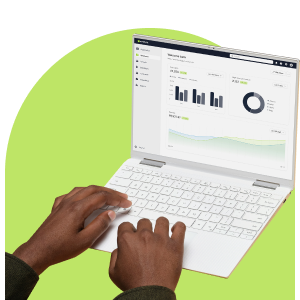When your business is small, it’s easy to manage customer data in one place. But as you grow, things get messy: one team uses a spreadsheet, another uses a Customer Relationship Management system (CRM), and your marketing runs on a different system. This often results in duplicate lists, mixed-up messages, and opportunities falling through the cracks. That’s where CRM integration comes in.
What to Look for in a CRM That Grows with Your Business
If your CRM (Customer Relationship Management system) talks directly to your marketing platform, new leads will automatically get the right emails or SMSes, sales updates will trigger personalised follow-ups and reports will show you the full picture of how customers can be moved from a lead to a loyal client.
However, not all CRMs are created equal. Here’s what to look for when searching for the perfect fit. Your CRM should:
- Connect easily to other tools, either directly or with services like Zapier.
- Share data in real time so items don’t fall through the cracks.
- Automate everyday tasks like sending follow-ups or updating contact details.
- Handle growth as your customer base gets bigger.
- Keep your data safe and comply with existing best practices.
How Everlytic Makes CRM Integration Simple
Everlytic is designed to be a hub that ties different work paths together. Here’s how:
- Works directly with tools like Microsoft Dynamics 365.
- Connect through the Everlytic app via Zapier.
- Has an open API (think of it like a digital handshake) for custom connections.
- Keeps customer details in sync – no more manual updating.
- Plays well with eCommerce platforms like Shopify and WooCommerce.
CRMs That Work Well with Everlytic
- Microsoft Dynamics 365: great if your business already runs on Microsoft.
- HubSpot CRM: simple to use, popular with marketing-led teams.
- Zoho CRM: affordable and flexible, good for mid-sized businesses.
- Pipedrive: light, easy-to-use CRMs that connect through Zapier.
Everlytic is a fully integrated marketing platform that connects seamlessly with your existing systems, enabling powerful automation, smarter targeting, and faster execution.
Practical Uses for CRM Integration with Everlytic
The real value of CRM integration is seeing how it plays out in everyday scenarios. Here are a few ways businesses use CRMs with Everlytic to engage customers and drive results:
- Recover abandoned carts: When someone leaves items in their online basket, Everlytic can trigger a reminder email, SMS or WhatsApp message.
- Nurture leads automatically: As soon as a sales lead changes to a new customer in your CRM, Everlytic can launch a personalised onboarding journey.
- Support in higher education: Universities and colleges can automate communications to re-engage students who miss classes or need extra help.
- Boost product adoption: If customers aren’t using a specific feature, Everlytic can send them a simple targeted “how-to” guide. For power users, it can deliver a thank-you message or invite them to be featured in a case study.
Marketing automation offers a streamlined way to boost efficiency and achieve better results. We share practical solutions to overcome the five most common obstacles in marketing automation.
How to Choose the Right CRM for Your Business
The best CRM for you depends on where your business is in its growth journey. Here’s a simple guide to help you decide:
- Startups: Choose a CRM that’s easy to set up and connects quickly to other tools via Zapier.
- Growing businesses: Investigate a CRM with stronger built-in integrations to reduce manual work as your customer base expands.
- Enterprises: Opt for robust platforms like Salesforce or Microsoft Dynamics that can handle complex structures and large-scale needs.
Tips for a Smooth Rollout of your CRM Integration
Rolling out a CRM integration with Everlytic is most effective when it’s done in phases. Here’s a step-by-step guide you can use:
- Review your current tools and data flows
List all the platforms your teams currently use – CRM, marketing, sales, eCommerce, analytics. Map out where customer data is stored and how it moves between systems. This helps you spot overlaps, duplicates, and gaps that integration can fix. - Start with basic database management
Begin by syncing your CRM contacts and leads with Everlytic. This ensures both systems have the same customer information and makes it easy to trigger basic campaigns like welcome emails or lead nurturing. - Add more automation gradually
Once the basics are stable, expand into more advanced workflows like abandoned cart recovery, renewal reminders, or behaviour-based triggers. Rolling out in phases prevents overwhelm and gives you space to test and refine. - Keep an eye on performance
Monitor your integration logs and campaign reports regularly. Look out for duplicate records, syncing errors, or delays in triggering. Catching these early helps you fix small issues before they turn into major frustrations. - Train your team and document processes
Make sure your marketing, sales, and support teams know how the integration works and what’s automated. Provide simple guidelines or a playbook so they know what to expect and when to step in manually. Confidence in the system leads to consistent adoption.
Choosing the right messaging platform can make or break your SME’s success. We share tips on what to look for when you go searching.
The Smart Way to Scale
A CRM on its own is just a database. The real magic happens when it’s connected to the tools that bring customer data to life. By integrating your CRM with Everlytic, data becomes actionable, workflows run seamlessly, personalised messages reach customers at the right time, and your business gains clarity with a complete overview of your customer journey.
Use Integrations to Scale with Confidence
The right integration makes running your business – and marketing – easier. It also enables your business to grow sustainably. Everlytic helps you build those connections so your business can scale with confidence. Book your Demo with Everlytic today!



